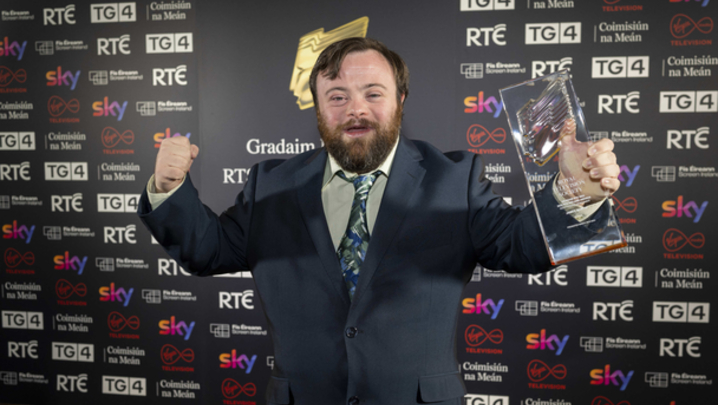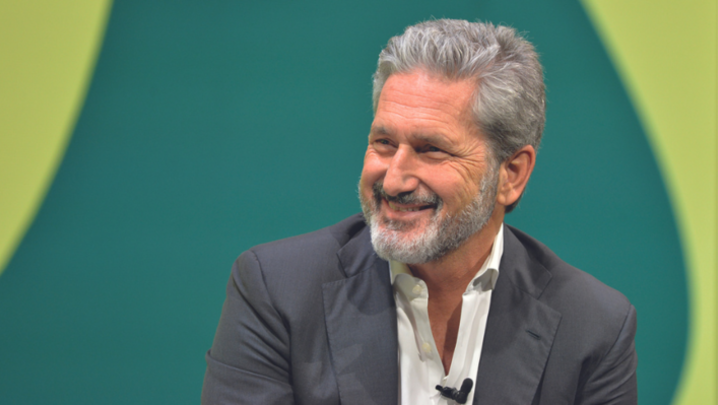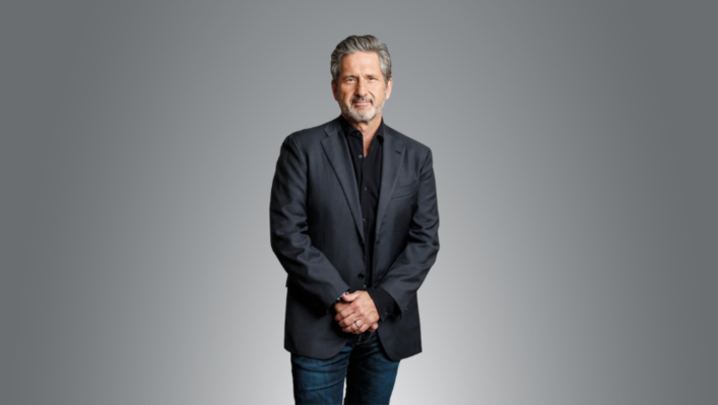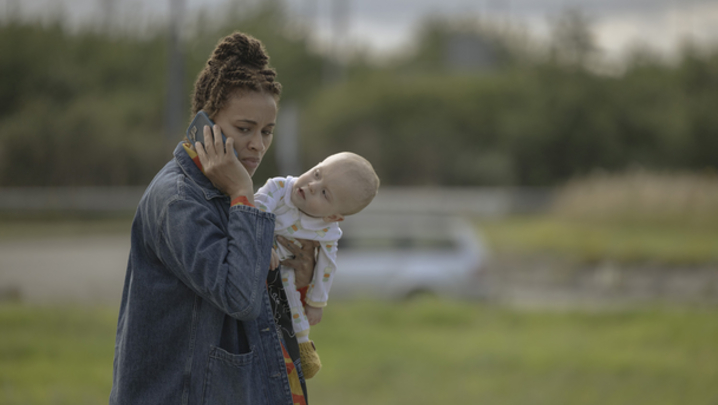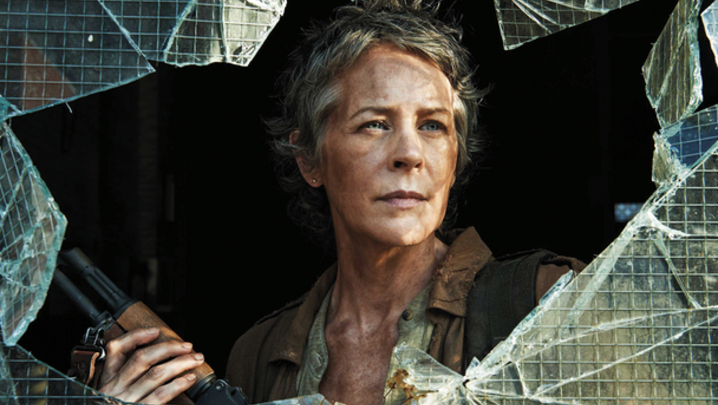Raymond Snoddy assesses the challenges facing Dee Forbes, the Irish national broadcaster’s first female Director-General
When Dee Forbes arrives in Dublin to take up the position of Director-General of Irish national broadcaster RTÉ, she will be the first woman to hold the post and the first to come from outside the organisation in almost 50 years.
Moreover, Forbes, currently on gardening leave as President and Managing Director of Discovery Networks, Northern Europe, will be returning to Ireland on something like half her present salary.
“Although it was a tough professional decision to leave Discovery, the personal decision to return to Ireland and lead its biggest broadcaster, RTÉ, is the opportunity of a lifetime,” said Forbes on her surprise appointment.
She was first approached for the RTÉ job five years ago but said then that the time wasn’t right. It is probable that the only job in the Irish media that she would ever have accepted is the one she will now take on as soon as agreement can be reached with Discovery.
Forbes, whose parents used to run the East End bar in the village of Drimoleague, West Cork (population 468), has lived and worked in London for 26 years. But, in a sense, she has never really been away.
For years, her usual routine has been to spend the week working in London and then commute to her home in West Cork. Her partner is also Irish.
Jeff Ford, former Director of Content at TV3, the commercial channel that is RTÉ’s main rival, concedes that her appointment may have been unexpected “but it’s a fantastic appointment for RTÉ. Her standing in the industry is second to none. The experience and different view she brings will enable her to take a fresh look at what RTÉ does.”
Ford, now Senior Vice-President for Content Development for Europe and Africa at Fox International Channels, adds: “She’s a girl from rural Cork and she has all that international broadcasting experience. It’s the best of both worlds. It’s a coming-home story.”
"We have not given up on sport, as the BBC has done"
When Forbes finally takes over, there will be no shortage of challenges. Apart from the strong presence of Sky and the availability of all the British channels via cable, RTÉ is likely to face intensified rivalry from TV3. The company was bought last July by Virgin Media and its owner, Liberty Global, for €80m (£62m).
To add to this complexity, UTV, the Northern Irish commercial broadcaster, launched UTV Ireland at the beginning of last year. Then, in October, UTV sold its television channels to ITV for £100m, including UTV Ireland, which continues to broadcast despite making heavy losses and, so far, a limited impact.
“Ireland is one of the most competitive TV markets in the world but, in terms of television, RTÉ is in a reasonably healthy position. RTÉ One is still the most popular channel by a long shot, still a lot more popular than TV3,” says Michael Foley, a journalist and academic specialising in Irish media.
“Obviously, people are watching television in different ways but that’s no different to where she [Forbes] was,” he adds. “Everybody grumbles but, in the main, the idea of public service broadcasting is actually supported in Ireland. RTÉ has come out of the recession intact.”
RTÉ also owns Saorview, the Irish equivalent of Freeview, which is now the primary broadcast platform following analogue switch-off in 2012. It shows Ireland’s most popular soap, Fair City, and the long-running chat show The Late Late Show.
The first major item to hit Forbes’s in-tray will be negotiations with the Irish Government on a new licence-fee settlement.
“The licence fee has been frozen since 2011. Talks with the Government are ongoing,” says Kevin Bakhurst, RTÉ’s Managing Director, News and Current Affairs and Deputy Director-General. Bakhurst, former Controller of the BBC News Channel, was one of the favourites to land the top job.
RTÉ is financed by a €160 (£124) licence fee but can also take advertising. The Irish broadcaster has lost around €9m (£7m) because a limit was imposed on a Government licence-fee subsidy for those on social security. And, at 15%, Ireland has one of the highest TV-licence evasion rates in Europe.
A plan to introduce a broadcasting charge on every household, irrespective of what devices are being used, which was suggested by former communications minister Pat Rabbitte, has been dropped.
Ireland is one of the most competitive TV markets in the world but… RTÉ is in a reasonably healthy position
Inevitably, Forbes will be seeking state help to do something about an evasion rate that, lost revenue aside, makes financial planning difficult at RTÉ.
Another big issue is the struggle to protect RTÉ’s sports rights from a potentially well-funded predator in the shape of TV3.
“We have not given up on sport, as the BBC has done,” says Bakhurst. “Apart from the Olympics, Champions League and the Euros, we have the GAA [Gaelic sports such as Irish football and hurling].”
But, in what may be the shape of things to come, TV3 outbid RTÉ in November for the live rights to the Six Nations Championship for the four years from 2018. This was a serious blow in a country obsessed by rugby.
Ford suspects that TV3 will get increased budgets to compete not just on sports rights, but on producing more local programming.
“Liberty is not a company to buy a channel such as TV3 and just not do anything. I think that it obviously has a strategy in play. I am sure it will be funding the channel at a level to get it to the next stage,” he says.
One of the things that Forbes may have to consider in future is entering into partnerships to protect access to as much live sport as possible.
Forbes declines to discuss her plans for RTÉ before she arrives, but it would be strange, given her experience, if she did not bring an international outlook to RTÉ.
The main focus will have to be delivering a public service broadcasting mandate for the people of Ireland.
She has particular knowledge of the Nordic countries. They have similar-sized populations to Ireland and are the home of successful noir thrillers. Perhaps Nordic-Irish collaborations could be one to watch for in future. While Forbes tends her garden, before moving into RTÉ HQ, the broadcasting battlefield in Ireland is still fluid. Will ITV axe the loss-making UTV Ireland or decide to invest more to make it a serious player? And why did Liberty invest in the free-to-air channel, TV3? Could it have anything to do with Liberty’s minority stake in ITV?
Ford is convinced that the status quo will be hard to sustain. Something has to give, he believes: “The marketplace is not big enough for that number of commercial broadcasters, given that RTÉ also takes advertising. The advertising pot is quite tiny and to have another commercial broadcaster [UTV Ireland] in the market is problematic. And why, exactly, is Liberty Global running a free-to-air TV station?”
The only certainty for Forbes is that her weekend commute is about to become more difficult. Given the state of Irish roads, it will probably take her longer to get from Dublin to West Cork than flying to Cork from London.


